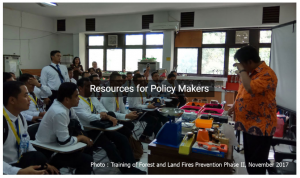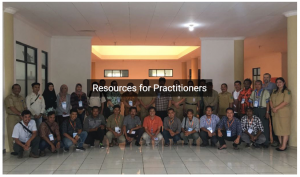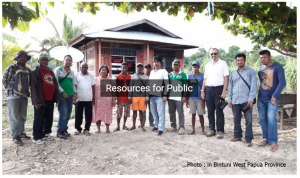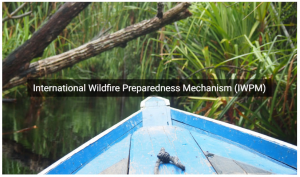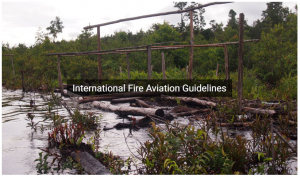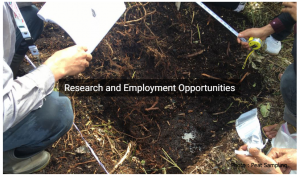[vc_row][vc_column][vc_column_text]
To address the scale and complexity of landscape fires which affects millions of hectares and people each year, RFMRC-SEA has developed a wide network of organizations both governmental and non-governmental. These collaborative relationships have developed over several decades and became more formalized through the establishment of the Southeast Asia Regional Wildland Fire Network in 2002 as a part of the UNISDR Global Wildland Fire Network. The RFMRC-SEA is an institutionalization of this Regional Network and is therefore uniquely positioned to provide advisory services on a variety of fronts including the retrieval of directives, research results and relevant fire science and fire management know-how. The RFMRC-SEA, positioned at an academic institution is also prepared to perform research on the prevention of forest and land fires in Southeast Asia. The RFMRC-SEA pursues cooperation jointly with organizations to develop knowledge and practical tools to help reduce the negative impact of forest and land fire as well increase beneficial effects for people and the environment. The RFMRC-SEA also monitors in near-real time, hotspots in Southeast Asia as obtained from NASA FIRMS or LAPAN satellite data and is able to provide the latest information to assist in combating and preventing future forest and land fires.
[/vc_column_text][/vc_column][/vc_row][vc_row][vc_column][vc_tta_accordion style=”modern” color=”green” c_icon=”chevron” active_section=”0″ collapsible_all=”true”][vc_tta_section title=”Resources for Policy Makers” tab_id=”1511231235590-dc9b79dc-a8cd”][vc_column_text]
The RFMRC-SEA aims to capacitate decision-makers by providing consultations and information regarding fire prevention and management to assist in the development of policy that supports resilient landscapes. RFMRC-SEA has a commitment to maintaining sustainable forest resources in the Southeast Asia Region through the prevention of forest and land fires; paramount to this is the development and implementation of policies informed through science and practice. See more…
[/vc_column_text][/vc_tta_section][vc_tta_section title=”Resources for Practitioners” tab_id=”1511231235721-db5cd4d9-41dd”][vc_column_text]
The RFMRC-SEA is a resource for practitioners in training and continuing vocational training for the management of forest and land fire (including information, training, training and education and the promotion of human resources and institutional capacity). RFMRC-SEA can aid in the development/updating of training materials, can offer practitioners a link to science, and can act as a broker in communicating practitioner needs to policymakers. A strength of RFMRC-SEA is that as a regional center, and as a part of the Global Wildland Fire Network, it can offer the regional practitioner community solutions and best practices from around the world. See more…
[/vc_column_text][/vc_tta_section][vc_tta_section title=”Resources for the Public” tab_id=”1511231403300-677ed124-88f3″][vc_column_text]
The RFMRC-SEA provides information to the public about how to manage forest resources without the potentially detrimental application of fire. For example, conducting land-clearing without burning (PLTB), as an effort to ensure that carrying capacity and resource sustainability can be maintained for future generations. RFMRC-SEA is committed to providing information to the public through socialization via social media, among other, in the prevention of forest and land fires. See more…
[/vc_column_text][/vc_tta_section][vc_tta_section title=”International Wildfire Preparedness Mechanism (IWPM)” tab_id=”1513582597904-eeba07e9-d3ce”][vc_column_text]
The IWPM was developed in following up the UNECE/FAO Regional Forum on Cross-boundary Fire Management (UN Geneva, November 2013). The IWPM, currently hosted by the Global Fire Monitoring Center (GFMC), is a non-financial instrument serving as a broker/facilitator between national and international agencies, programmes and projects to exchange expertise and build capacities in wildland fire management and particularly in enhancing preparedness to large wildfire emergency situations. The IWPM has been developed in tandem with the International Fire Aviation Guidelines and the International Manual of Common Rules for Fire Aviation. See more…
[/vc_column_text][/vc_tta_section][vc_tta_section title=”International Fire Aviation Guidelines” tab_id=”1513582656275-6c37066b-4aaa”][vc_column_text]
Introducing the Fire Aviation Guidelines incorporating the International Manual of Common Rules for Fire Aviation.
The International Fire Aviation Working Group (IFAWG) comprises an international group of aerial fire management specialists who lead and manage the use of aircraft for wildland fire management around the world. This group is made up of representatives from countries and jurisdictions who regularly utilize aerial means in managing landscape fire, including for firefighting. The IFAWG operates as a Working Group of the Wildland Fire Advisory Group (WFAG) of the United Nations International Strategy for Disaster Reduction (UNISDR). The group aims to improve the safety and effectiveness of aerial means by sharing information, experience, and resources.
IFAWG joined the preparation, organization, and follow-up of the UNECE/FAO Regional Forum on Cross-boundary Fire Management and contributed to the international consent-based Fire Aviation Guidelines.
In 2014 an Introductory Paper has been published by IFAWG. Starting in December 2014 Draft Part I of the International Fire Aviation Guidelines (incorporating the International Manual of Common Rules for Fire Aviation) are available for screening and comments (see left for download). Please send your comments to the IFAWG Secretariat.
Part II of the Fire Aviation Guidelines: The International Manual of Common Rules for Fire Aviation will follow for review and comments in early 2015. See more…
[/vc_column_text][/vc_tta_section][vc_tta_section title=”Research and Employment Opportunities” tab_id=”1513582685750-4dab46a1-f305″][vc_column_text]
Individual Announcements
- Want to fight wildfires? Applications now open with U.S. Forest Service (August 2017)
- Post-doc position “Remote Sensing of Fires and Terrestrial Ecosystems” at University of California, Irvine (deadline for applications: 7 August 2016) (PDF, 0.1 MB)
- Forestry Officer (Forest Fire Management), UN Food and Agriculture Organization (FAO) (Deadline for application: 21 June 2017) (PDF, 0.1 MB)
- Post-doctoral researcher for the Global Fire Assimilation System (GFAS) climate project at the Max Planck Institute for Chemistry, Germany (Announcement Date: 28 April 2017) (PDF, 0.1 MB)
- Ph.D. student in wildfire smoke sampling using drones at Vrije Universiteit Amsterdam (application deadline: 1 October 2016)
- Assistant Professor of Wildland Fire: University of Alberta, Canada, Faculty of Agricultural, Life and Environmental Sciences, Department of Renewable Resources (the Selection Committee will begin consideration of applicants on 9 August 2016)
- Kings College, London: Three Research Associate Positions in Satellite Earth Observation and/or Laboratory and Field Measurement of Vegetation Fires and Smoke Emissions (deadline for applications: 22 May 2016)
Expired Job Announcements (Archive)
Permanent Web Pages
U.S. Bureau of Land Management Employment Opportunities
http://www.fire.blm.gov/recruit.htm
U.S. Forest Service
http://www.fs.fed.us/fire/fire_new/people/employment/
U.S. Fish and Wildlife Service
http://fire.r9.fws.gov/jobs/employment.htm
U.S National Park Service
http://www.nps.gov/fire/jobs/index.htm
Wildlandfire.Com Job Announcements
http://www.wildlandfire2.com/jobs.htm
General Firefighting Employment Online
http://forestry.about.com/library/weekly/aa012300.htm
Fire Research and Management Exchange System (FRAMES):
http://www.frames.gov/notices/jobs/
See more…[/vc_column_text][/vc_tta_section][/vc_tta_accordion][/vc_column][/vc_row]
